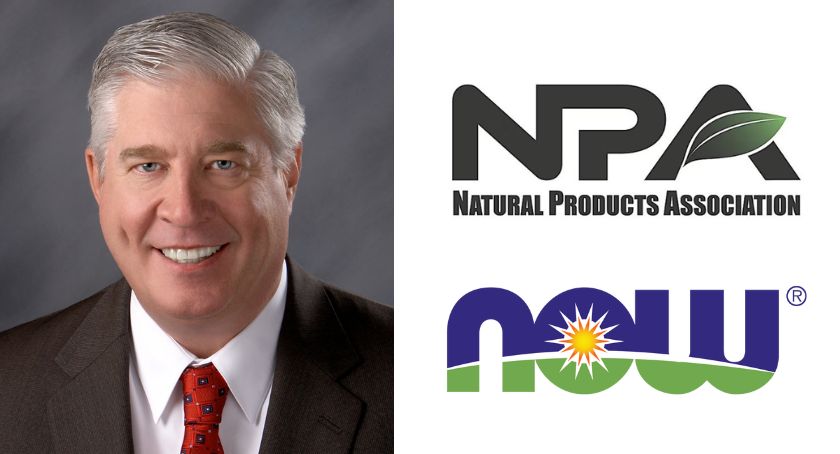Market Updates, Regulations
FDA Issues Final Guidance on NAC Supplements
The agency plans to exercise enforcement discretion on the ingredient after questioning its legality based on drug preclusion.

By: Mike Montemarano

FDA has released a finalized version of its guidance on supplements containing NAC (N-acetyl-cysteine), an ingredient which has been sold widely for decades. NAC is a precursor to the amino acid glutathione, and is found in a number of high-protein foods.
FDA contends that based on the “drug preclusion” clause of the Dietary Supplements Health and Education Act (DSHEA), NAC cannot legally be sold as a dietary supplement due to the fact that it was approved as a drug marketed Mucomyst in 1963, prior to DSHEA’s passage. After issuing several warning letters to the manufacturers of NAC supplements based on this concern, several major retailers pulled NAC-containing products from their shelves and online stocks. The Natural Products Association (NPA) and the Council for Responsible Nutrition (CRN) both filed citizen petitions, each of which requested that the agency maintain legal presence in the market through different regulatory pathways. NPA also filed a lawsuit against the agency for declaratory and injunctive relief based on what it alleged was an unlawful retroactive application of DSHEA.
The agency now has finalized a version of draft guidance that it published March indicating that it intends to engage in rulemaking to permit the use of NAC in or as a dietary supplement.
“FDA has determined that NAC is excluded from the dietary supplement definition under section 201(ff)(3)(B)(i) of the FD&C Act because NAC was approved as a new drug before it was marketed as a dietary supplement or food,” the agency wrote in the guidance. “However, we are considering initiating rulemaking […] to permit the use of NAC in or as a dietary supplement […]. If, among other considerations, FDA does not identify safety-related concerns as we continue our review of the available data and information, we are likely to propose a rule providing that NAC is not excluded from the definition of a dietary supplement.”
“Unless we identify safety-related concerns during our ongoing review, FDA intends to exercise enforcement discretion until either of the following occurs: we complete notice-and-comment rulemaking to allow the use of NAC in or as a dietary supplement (should we move forward with such proceedings) or we deny the NPA citizen petition’s request for rulemaking. Should we determine that this enforcement discretion policy is no longer appropriate, we will withdraw or revise this guidance in accordance with 21 CFR 10.115.”
NPA: A Big Win, But a Fight that Shouldn’t Have Happened
“This is a big win, but bittersweet for sure. Although it was NPA’s leadership that secured this victory for American consumers, the FDA could have and should have reached this decision years ago. The dietary supplement industry is under attack from all levels of government, from shortsighted organizations pushing for unnecessary and costly new federal red tape to state lawmakers who are determined to block access to supplements and raise costs for consumers and retailers, but NPA’s members had the foresight and commitment to turn the tide,” said Daniel Fabricant, PhD president and CEO of the Natural Products Association.
“Citizens petitions and lawsuits are extreme measures and should be the rare exception, not the rule. The industry experienced significant economic harm as a direct result of the Agency’s years long and inexplicable delays on NAC, but thankfully our actions held FDA accountable and forced their hand on issuing final guidance. We hope this is a teachable moment for the agency that expedites resolution on any remaining issues on NAC with FDA and that basic regulatory obligations in the future are handled in the timely and professional manner befitting of the world’s gold standard.”
CRN: FDA’s Interpretation of Drug Preclusion is Wrong
Throughout the NAC ordeal, CRN has argued that in DSHEA, the intent of the legislation was to protect the regulatory status of any supplement that was legally marketed before its passage in 1994, rendering those supplements immune from the “drug preclusion” clause (even if the ingredient may have been approved as a drug prior). Put simply, the organization contends that dietary supplement ingredients on the market prior to the legislation’s passage are not implicated in drug preclusion.
“CRN appreciates FDA providing this final enforcement discretion, but CRN continues to disagree with FDA’s interpretation of the drug preclusion clause that led to the need for this policy in the first place. Drug preclusion should not apply to NAC,” said Megan Olsen, CRN’s senior vice president and general counsel.
“FDA has suggested that it cannot start the rulemaking process under the exclusion to the drug preclusion clause because it is still reviewing the safety of NAC. FDA has had access to safety information provided by stakeholders at the request of FDA for more than six months, and this ingredient has been sold as a dietary supplement for decades without any safety issues being raised. FDA has had ample time to raise any safety concerns; continuing to stall on the rulemaking at this point just harms businesses and consumers,” Olsen said.
“FDA spokespersons have also indicated that rulemaking could take 3 to 5 years – all the more reason why FDA should begin the rulemaking process immediately or provide its reasoning for needing additional safety or other data. We strongly encourage FDA to explore ways in which rulemaking can be expedited, such as using interim rulemaking authority and providing adequate agency resources to the notice and comment rulemaking process so a final rule can be implemented as quickly as the law allows, without the need for additional extensions or delays by the agency during the rulemaking process.”




















